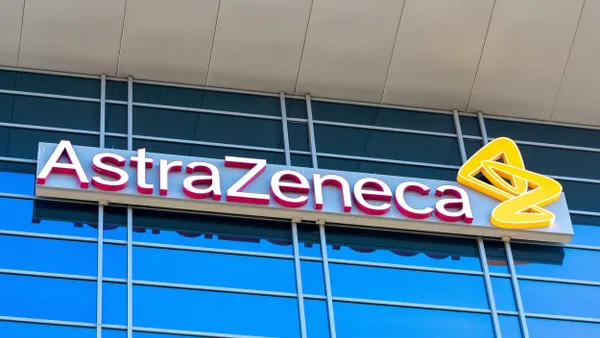Novartis is making one of the largest dealmaking gambles in its history, agreeing on Sunday to spend billions of dollars to acquire biotechnology company Avidity Biosciences, which is working on RNA medicines for rare neuromuscular conditions.
Per deal terms, Novartis is paying $72 per share to acquire Avidity. The offer values Avidity at $12 billion and represents a 46% per-share premium to the biotech’s $49.15 closing price on Friday.
Avidity will concurrently split off early-stage work it's doing in cardiovascular disease into a new, unnamed company that’s expected to be publicly traded. That company will be run by Avidity’s current Chief Program Officer Kathleen Gallagher and chaired by CEO Sarah Boyce. Avidity stockholders will receive one share in the new company for every 10 of Avidity they own, or a proportional cash payment if certain assets, or the whole company, are sold to a third party.
The deal is the year’s second-largest by total consideration, trailing only Johnson & Johnson’s $14.6 billion buyout of Intra-Cellular Therapies in January, according to BioPharma Dive data. It also comes amid a recent upswing in biotech dealmaking that’s helped fuel a rally for biotech stocks. There have been eight acquisitions with at least $50 million in upfront cash in October, the most of any month in several years, data show.
The Avidity purchase is one of Novartis’ biggest in years, too. Prior to the acquisition, its largest most recent purchases were a roughly $9 billion buyout of gene therapy maker AveXis in 2018 and a nearly $10 billion deal for heart drug developer The Medicines Company in 2019.
Avidity has been working on a technology that can deliver RNA drugs — which are largely limited to liver targets — into hard-to-reach muscle tissue. The company has a trio of these so-called antisense oligonucelotide conjugates, or AOCs, in late-stage testing for Duchenne muscular dystrophy, facioscapulohumeral muscular dystrophy and myotonic dystrophy type 1 — three progressive neuromuscular conditions with limited treatment options. They’re each meant to restore muscle function and potentially slow disease progression.
In August, Avidity said it was on track to submit three approval submissions over the next 12 months. The first, for a subset of people with Duchenne, is expected in the first quarter of 2026. Filings could come for the other two if a pair of studies read out positively. Results from both trials are anticipated in the second quarter next year, Avidity has said.
Novartis claimed Sunday that these programs will “unlock multibillion-dollar opportunities” and help create an “industry-leading pipeline” that builds on its sales expertise in neuromuscular diseases. The company already sells a gene therapy for spinal muscular atrophy via its buyout of AveXis, and last year added more prospects for myotonic dystrophy and facioscapulohumeral muscular dystrophy through an acquisition of Kate Therapeutics.
“Avidity’s pioneering AOC platform for RNA therapeutics and its late-stage assets bolster our commitment to delivering innovative, targeted and potentially first-in-class medicines to treat devastating, progressive neuromuscular diseases,” said Novartis CEO Vas Narasimhan, in a statement. “The Avidity team has built robust programs with industry-leading delivery of RNA therapeutics to muscle tissue. We look forward to developing these programs to meaningfully change the trajectory of diseases for patients.”
The deal is expected to close in the first half of next year.













